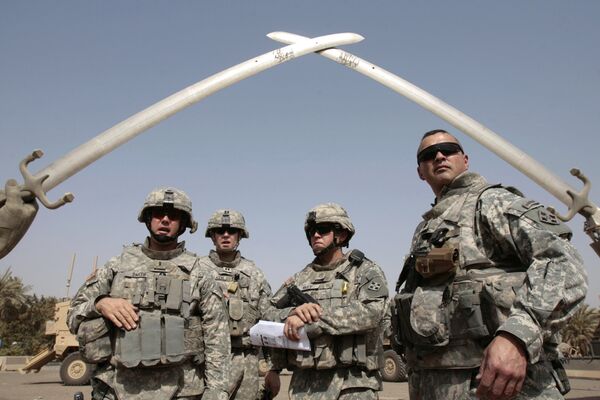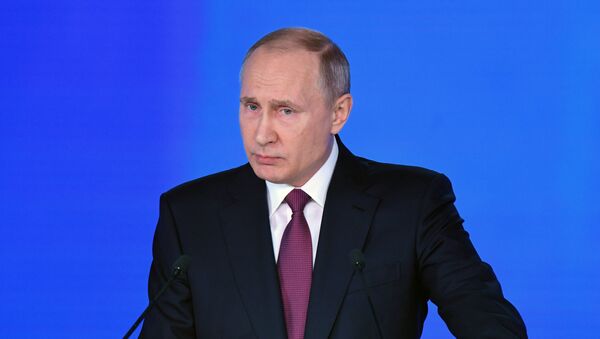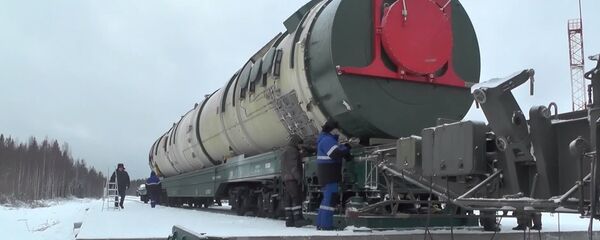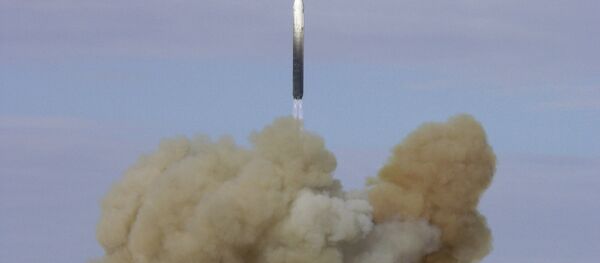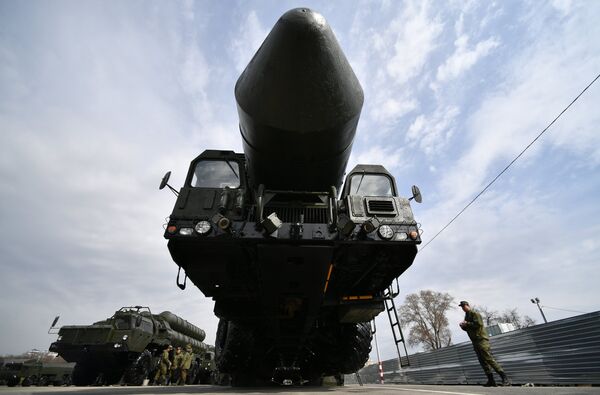Vladimir Putin has made it crystal clear that Moscow is on the defensive, years after fruitlessly asking its Western 'partners' to stop encircling Russia with a web of strategic weapons, bases and power-changing conflicts – from the Middle East to Eastern Europe.
Commenting on the president's "Nobody wanted to listen to us. So listen now," remarks, which accompanied the new strategic weapons unveiled in his Thursday speech, the Guardian and Voice of America accused Putin of "threatening" the US with an arms race, while The Washington Post charged the Russian leader with digging up "chilling echoes" of the Cold War.
The Pentagon boasted that it was "ready" to react to "anything that may come our way." The White House, in turn, accused Moscow of "developing destabilizing weapon systems…in direct violation of its treaty obligations."
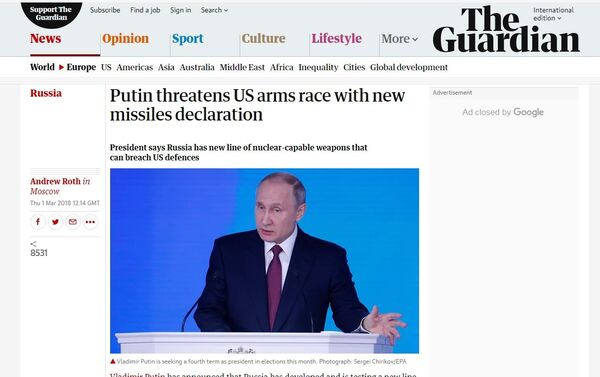
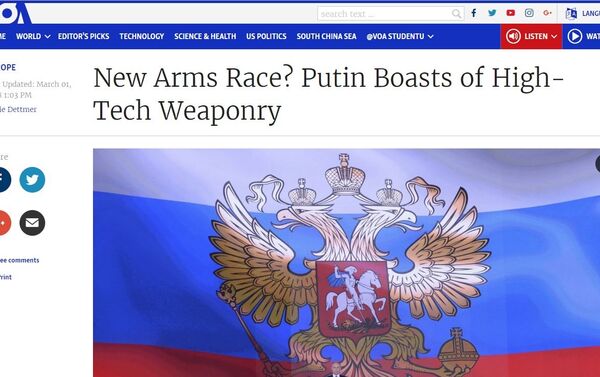
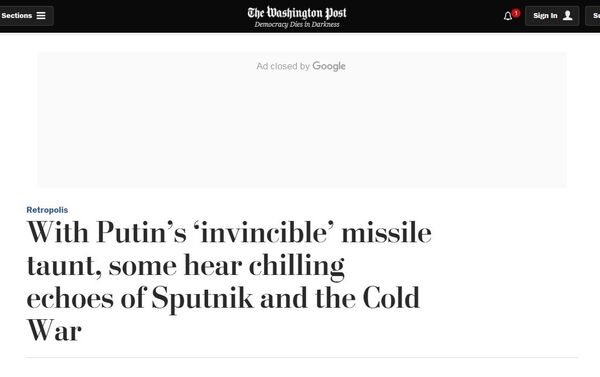
"As you can see, we made no secret of our plans and spoke about them openly, primarily to encourage our partners into holding talks. Let me repeat, this was in 2004," Putin emphasized. Unfortunately, notwithstanding Moscow's status as a nuclear power, "nobody really wanted to talk to us about the core of the problem. Nobody wanted to listen to us. So listen now," he quipped, before moving on to a series of presentations about Russia's latest strategic weapons.
For any mainstream media giants who would like to blame Russia's new weapons for being the opening shot in a Cold War 2.0 confrontation, there are a few things worth bearing in mind.
#1: It wasn't Moscow that withdrew from the Anti-Ballistic Missile Treaty in 2002 and began to deploy a missile defense system on its strategic rival's western borders, under the pretense of an imaginary threat from Iran.
In 2016, Putin recalled that Washington had continued its missile defense buildup in Poland and Romania even after the signing of the Iranian nuclear deal in 2015, thus dispelling any pretense that the system was a response to any sort of Iranian threat.
Pointing out that Moscow had made a series of proposals to Washington on the creation of a joint missile defense shield, Putin pointed out that all of Russia's proposals "were rejected…Everything is done unilaterally, without taking into account our concerns."
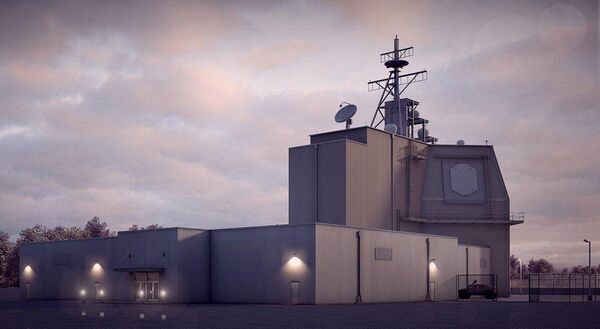
2#: It's the US and NATO which have been encroaching on Russia's borders and ringing the country with military bases, not the other way around.
The Western alliance has long forgotten the promises it made to Moscow in the early 1990s not to expand eastward, pushing further and further east in several waves in 2000, 2004, 2009 and 2017, and eyeing the prospects of alliance membership for Georgia, Finland, and Sweden. The 2014 Maidan coup d'état in Kiev only heightened Russian concerns, bringing the prospect of NATO troops and weaponry stationed in the Russian heartland one step closer to reality.
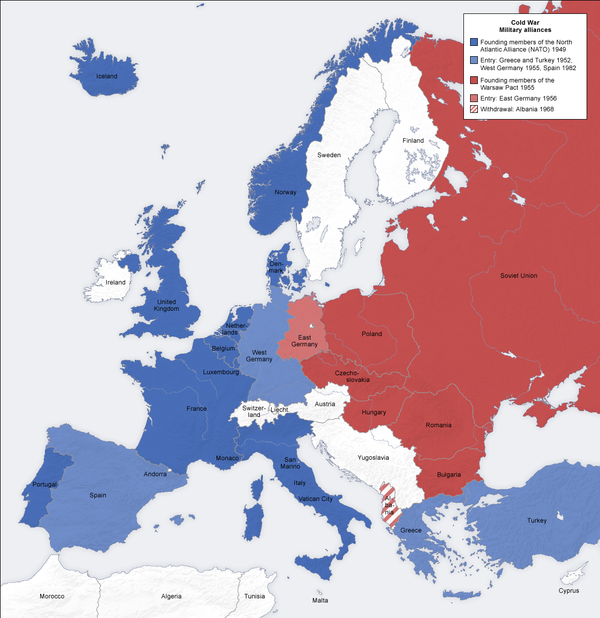
#3: It's the US, not Russia, which recently adopted a dangerous Nuclear Posture Review approving the use of nuclear weapons to react to non-nuclear threats, up to and including cyber threats.
President Putin said as much in Thursday's speech, stressing that Russia was "greatly concerned" by the document's implications, and warning that the new doctrine "reduces the threshold for the use of nuclear weapons."
"I should note that under our country's military doctrine, Russia reserves the right to use nuclear weapons solely in response to a nuclear attack, or an attack with other weapons of mass destruction against our country or its allies, or an act of aggression against us using conventional weapons which threatens the very existence of the state," Putin emphasized.
4#: Unlike Washington, Moscow has not spent the last two and a half decades attempting to establish a unipolar world order through the use of military force, from Yugoslavia and Afghanistan to Iraq, Libya, Yemen, Syria and elsewhere.
Putin summed up Moscow's pursuit of new strategic weapons systems in Thursday's speech:
"We are not threatening anyone, aren't going to attack anyone or take anything from anyone by threat of arms….Just the opposite…Russia's growing military power is a solid guarantee of global peace, as it preserves and will continue to preserve strategic parity and the balance of forces in the world, which, as is well-known, has been and remains a key factor of international security after WWII and up to the present day."
